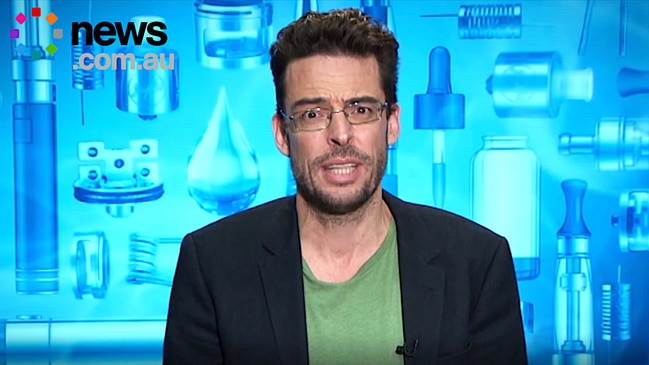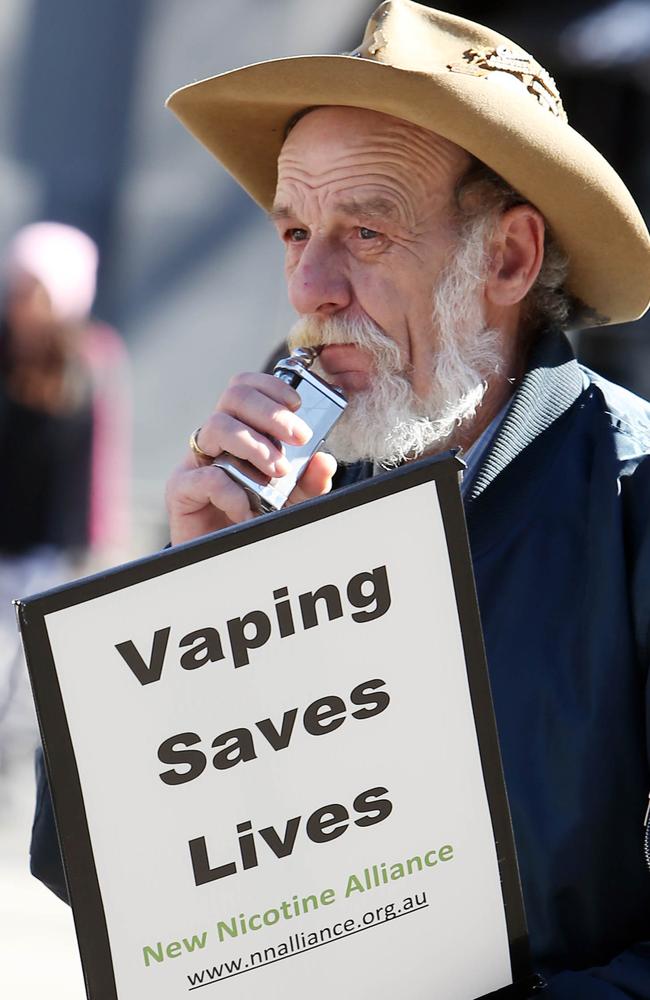Vape expectations: The Kiwi law which shows Australia up
PROPONENTS of vaping say the Kiwis are showing us up again, making it easier for smokers to quit, while Australia makes it as hard as possible.

VAPING with nicotine — banned in Australia — is now legal in New Zealand.
It’s a move guaranteed to increase pressure on Australian politicians to change laws around vaping and e-cigarettes.
Australians wanting to buy nicotine vape-liquid, need a prescription and a specialist chemist, facing fines and even jail time if they don’t have it.
The Australian government continues to resist calls to make vaping with nicotine liquid legal — as it is in Britain, the United States and NZ, where it’s backed as a stop-smoking aid — at the same time continues to allow the sale of cigarettes.
The consequences of buying the nicotine liquid without a prescription can result in hefty fines and potential jail time.
Earlier this year, a Federal inquiry into vaping and e-cigarettes recommended the nicotine vaping ban stay in place, despite the chairman of the inquiry lodging his own dissenting report calling for it to be legalised.
Inquiry chairman Trent Zimmerman said e-cigarettes could save thousands of lives if long-term smokers turn to them as an alternative to tobacco.
The committee also examined findings of a UK study urging smokers to embrace vaping as a quit smoking tool after it found e-cigarettes were 95 per cent less harmful than smoking.
Late last year, Federal Health Minister Greg Hunt declared lifting the ban on e-cigarettes would not happen on his watch.
In April, NSW joined other Australian states to ban vaping of any kind in public spaces.
Nicotine vaping proponents in Australia say New Zealand’s latest move is “a victory for common sense”: the Kiwis are making it easier quick, while Australia is making it as hard as possible.
“Essentially, New Zealand is recognising that ... vaping devices which heat a nicotine solution without smoke or combustion are substantially safer than products which burn tobacco, like cigarettes,” said University of NSW professor Colin Mendelsohn.
“Most of the harm from combustible tobacco is caused by the 7000 chemicals produced by the burning process and these are mostly absent from vapour.
“It is unethical and unscientific to ban a much safer product that could help many thousands of smokers to quit a deadly addiction.
“It would be a mistake to delay these products for another 20 to 30 years. Too many lives are at stake.

“The known harms from withholding ‘tobacco harm reduction options’ such as vaping far outweigh any uncertainties,” Professor Mendelsohn added. “Continuing to smoke carries a two in three risk of being killed by smoking.
The new law in New Zealand makes the sale of nicotine e-cigarettes and e-liquid legal as consumer goods on the basis that vaping is a much safer alternative to smoking and could help many smokers to quit.
Announcing the change, NZ Associate Health Minister Nicky Wagner said scientific evidence on the safety of e-cigarettes was is still developing “but there’s a general consensus that vaping is much less harmful than smoking”.
“The Government is taking a cautious approach by aligning the regulations around vaping with those for cigarettes,” she said.
“This ensures cigarette smokers have access to a lower-risk alternative while we continue to discourage people from smoking or vaping in the first place.
“This is an opportunity to see if restricted access to e-cigarettes and e-liquid can help lower our smoking rates, reduce harm and save lives.
“The Government is strongly committed to achieving our goal of a smoke-free New Zealand by 2025.”
The new NZ rules for all e-cigarettes, whether or not they contain nicotine, include: Restricting sales to those 18 years and over, prohibiting vaping in indoor workplaces and other areas where smoking is banned and restricting advertising to limit the attraction of e-cigarettes to nonsmokers.




